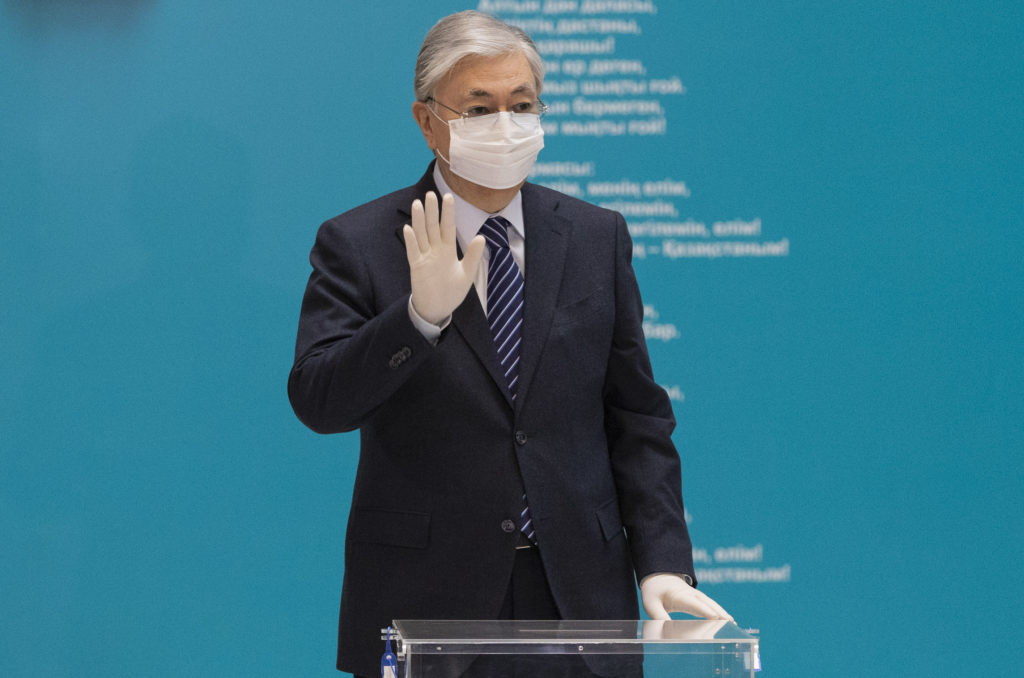NUR-SULTAN
Kazakhstan plans to make changes to the Central Asian country’s electoral legislation, easing requirements for political parties and introducing direct voting at the local municipal election, in a move to liberalise its political system.
Kazakhstan’s ruling Nur Otan party, headed by former president Nursultan Nazarbayev, won a landslide victory with 71.09 percent of the vote in parliamentary elections in January this year. No major opposition groups ran against Nur Otan, the party that’s dominated Kazakhstan’s political scene for decades. and Western observers said the vote was uncompetitive.
“The campaign was not competitive, and contestants did not substantially challenge their rivals on their political platforms,” observers from the Organisation for Security and Cooperation in Europe said in a statement.
The country’s President Kassym-Jomart Tokayev, who took over after Nazarbayev’s resignation in 2019, said after the vote in January that he would initiate changes to the electoral system.
After almost three decades in power, Nazarbayev’s resignation, coming before the end of his latest five-year term, came as a shock, though it followed a series of persistent anti-government protests across Kazakhstan. He said his decision was motivated by the need for a “new generation of leaders”, and handed power to Tokayev, a senior member of his party and the speaker of the upper house of parliament. Nazarbayev still continues to lead Nur Otan.
Tokayev has said that reducing the electoral threshold would encourage other political parties to participate in the elections.
Changes presented at the Majilis -parliament’s lower house- this week suggest reducing the threshold for political parties to get into parliament to 5 percent from 7 percent and the introduction of “Against all” column in candidate lists.
“These changes are aimed at stimulating the registered parties to participate in the upcoming elections, the development of political competition in the country, the expression by the population of their right to vote against all candidates in elections at all levels,” Alisher Abdykadyrov, the National Economy Vice Minister, said.
The amendments also include the direct election of heads of local municipalities and allowing representatives of political parties or independent candidates to participate.
The amendments are expected to be adopted in May. Elections to local municipalities are due to be held after June 30.

